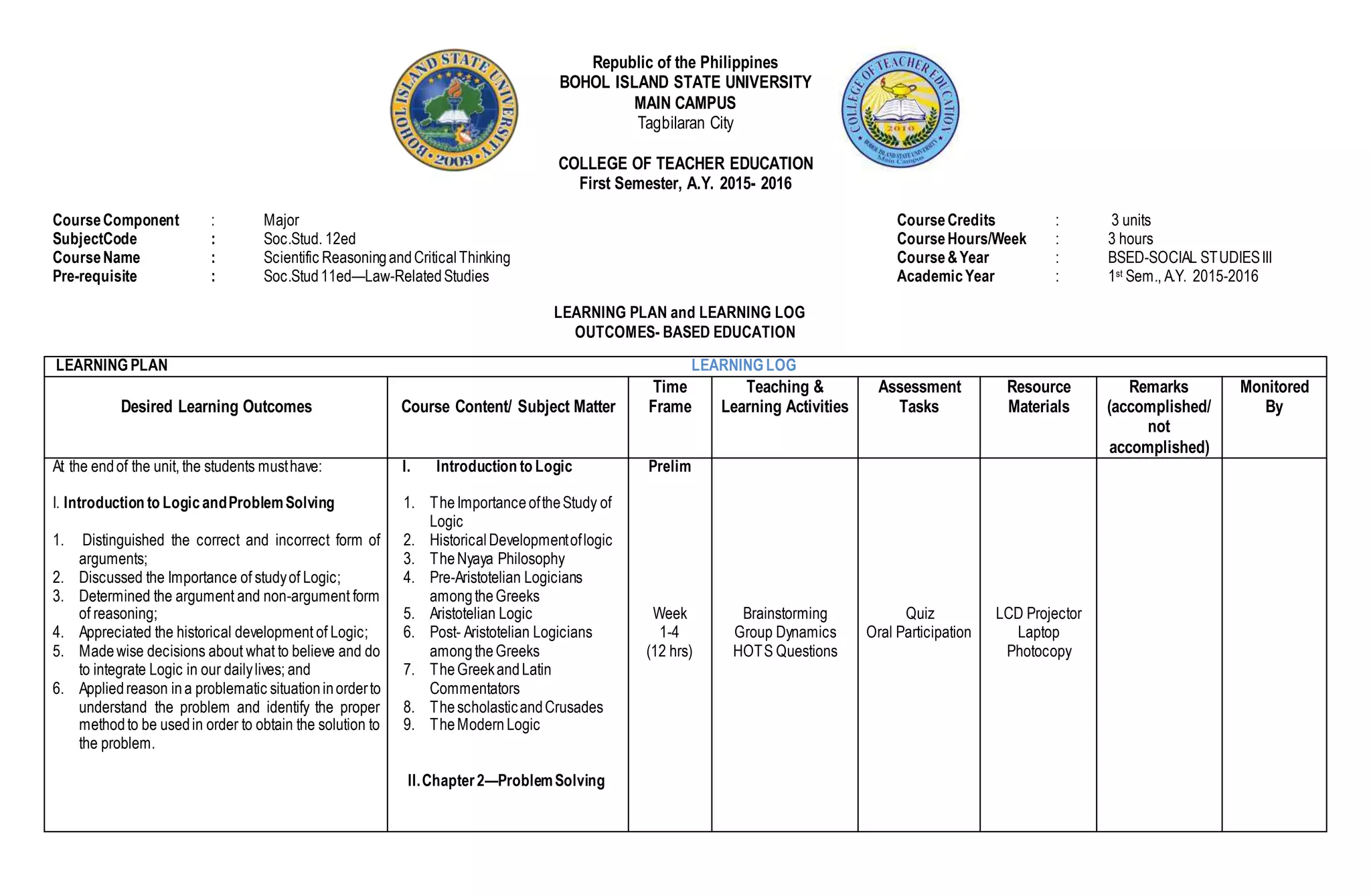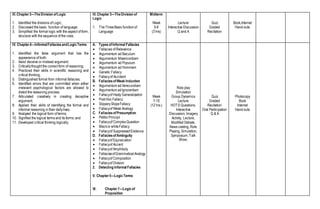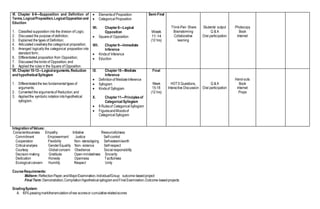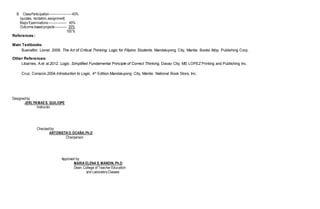This document outlines the learning plan for a course on Scientific Reasoning and Critical Thinking. Over the course of 18 weeks, students will study logic, problem solving, fallacies, and syllogisms. They will learn to distinguish correct from incorrect arguments, appreciate the history of logic, and apply reason to problematic situations. Assessment will include exams, projects, class participation, and reflections. The goal is for students to develop skills in scientific reasoning, critical thinking, and identifying formal and informal fallacies.



